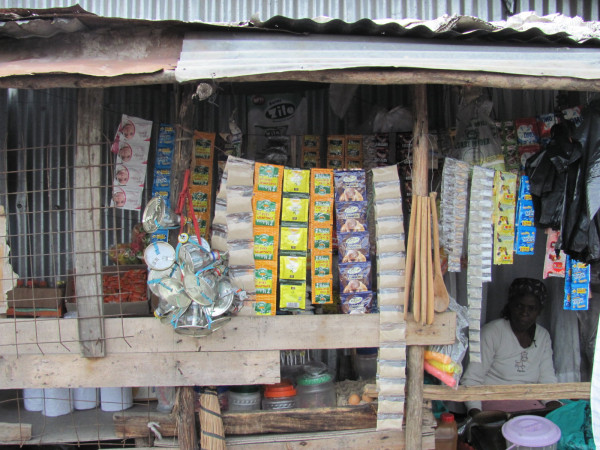Why more Kenyan households are visiting ‘kiosks’

More Kenyan households are visiting mini-stores and ‘kiosks’ to purchase basic commodities despite the revival of supermarkets, a new report shows.
A report by Boston Consulting Group (BCG) says in Kenya, consumers purchase 77 per cent of their goods from more the than 250000 small stores across the country, despite the well-established and organised hypermarkets and supermarkets retail chain.
The research which was done in Nairobi and Mombasa further states that traditional shops will account for 65 per cent to 75 per cent of sales in most of the region and be a catalyst for Kenya’s vision 2030.
This contradicts previous outlooks that projected a boom to Kenya’s supermarket sector on the back of rising middle class, robust digital presence, and increased purchasing power.
Mini shops are king
Instead, the revelation reflects consumers’ shift to the ‘kadogo economy’ to beat the odds occasioned by the current turbulent economic times that has reduced people’s purchasing power.
In the ‘kadogo economy,’ shopkeepers tailor their prices against consumer needs. Many fast moving consumer goods suppliers have long embraced this model, unlike the supermarkets, leading to the rise of mini-stores and kiosks across the country.
Boston further projects that the mini-shop sector could even gain more traction if they adopt use of e-commerce and patent services which are widely being used in the retail sector.
“The traditional retail sector will remain at the core of Kenya’s commerce for the foreseeable future. The nation’s dynamic digital technology ecosystem and the significant penetration of mobile money are stimulating a transformation of both traditional and modern stores,” said Chris Mitchell, Managing Director and partner at BCG.
Kenya has several small independent supermarkets as well as established brands and hypermarket chains. However, modern sector growth has been sluggish in the past few years, with players such as Uchumi, Nakumatt and Shoprite having exited or gone bankrupt through a combination of poor management, overly rapid expansion, and inappropriate formats.
Despite aggressive expansion, experts argue that the retail chain is also dogged with poor strategic decisions and rigid models, leaving chances that the corner shops have exploited. “Financing of supermarkets and the mode of operation has taken a heavy toll on them. When they are down, they hardly rise again. Corner shops have pricing advantages, something that the supermarkets cannot do. Many dukas are flexible,” argues John Kirimi, director at Sterling investment bank.












